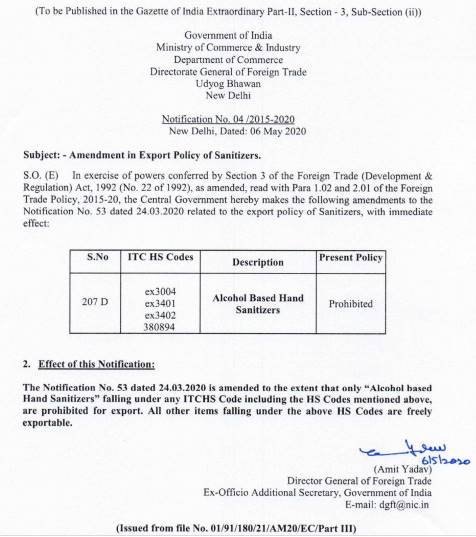The government on Wednesday banned exports of certain alcohol-based hand sanitisers, tightening the restrictions on the outbound shipment of such disinfectants imposed in March, to keep domestic supplies steady in the wake of the Covid-19 outbreak.
The commerce ministry had on March 24 banned the exports of all sorts of ventilators, including artificial respiratory apparatus, oxygen therapy apparatus and breathing devices, and sanitisers.
The latest ban by the commerce ministry is aimed at squeezing any scope for exports of these products by alternate classification. The ministry had on March 19 restricted the export of ventilators, surgical/disposable masks and textile raw material used for making the masks.
In March, alarmed by the increasing Covid-19 cases, the ministry had also restricted the exports of a total of 26 drug formulations and active pharma ingredients (APIs), including paracetamol, tinidazole and metronidazole. However, the export restrictions on some of the products were lifted later.
While the Indian pharmaceutical industry is a key formulation drug (value-added products) exporter, it relies heavily on imports of bulk drugs (active pharmaceutical ingredients and intermediates that give medicines their therapeutic value). As much as 68% of these raw materials were imported from China last fiscal.
According to a CII estimate in February, India imported bulk drugs worth around Rs 24,900 crore in FY19, up by 30% from a year before, accounting for roughly 40% of the domestic consumption. Imports of raw materials from China have been on a steady rise over the years (from 62% in FY12 to 68% in FY19) due to the low-cost advantage enjoyed by Chinese manufacturers.
In FY19, India imported APIs worth Rs 17,400 crore from China while exporting these items worth merely Rs 1,600 crore. In certain critical antibiotics and antipyretics, dependence on imports from China is even close to 100%.








